No Matter the Outcome, Election Day 2020 Gave Me Hope
Marie Claire contributing editor Chloe Angyal spent the day registering new voters. Here's why what she experienced is a good thing for all Americans.
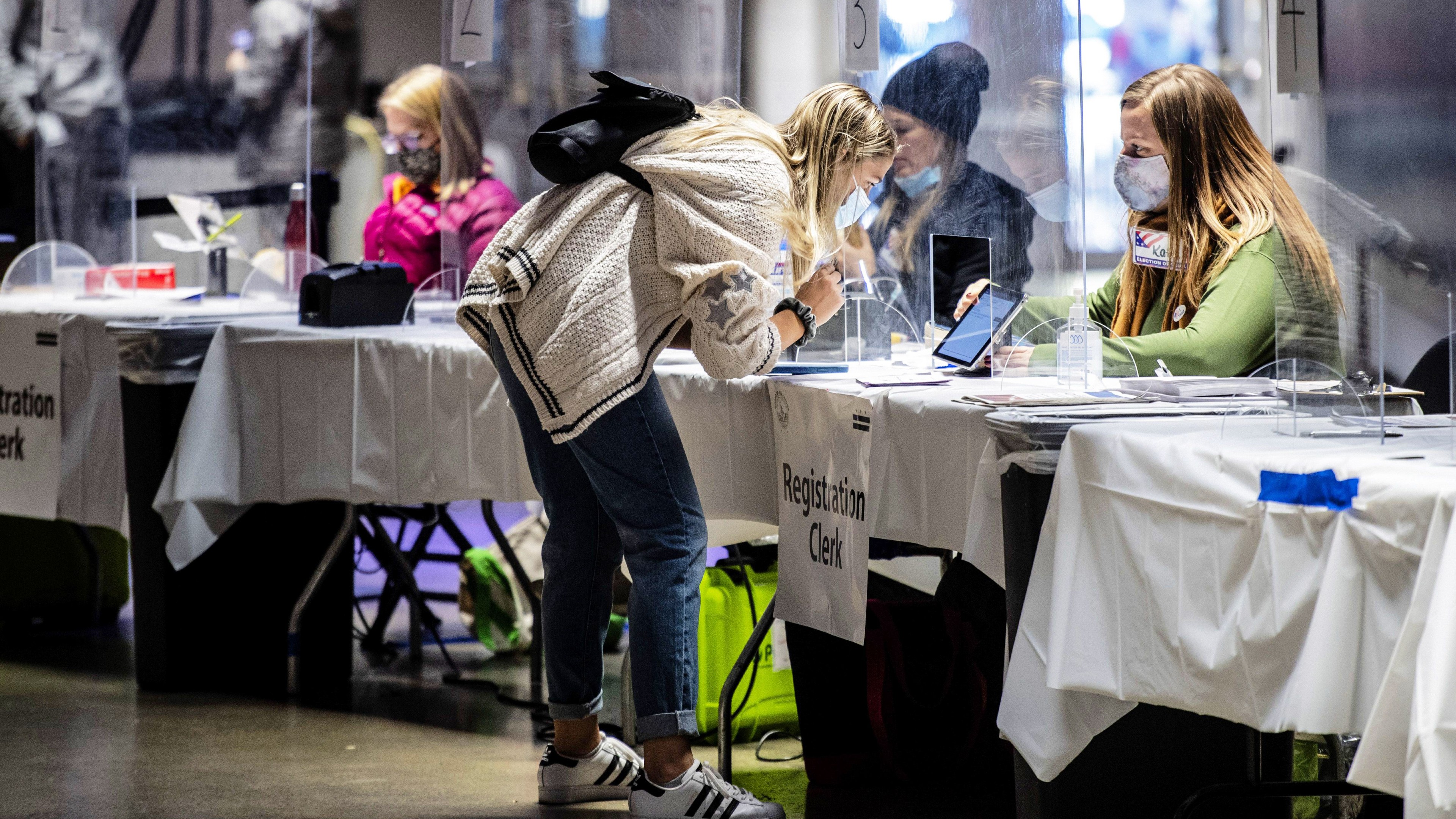

My memories of Election Day 2020 will always be associated with one emotion: relief. Oh, there were other emotions: dread, panic, excitement, more dread, and sheer disassociated numbness. But relief is the MVP for me. Not because the outcomes all swung the way I wanted them to (some really, really didn't). But because relief was the sentiment I watched wash over so many people’s faces when they realized how quick and easy it was going to be for them to register and vote.
I spent the second half of the day—from about 2pm until about 10pm—as an election worker at my local polling place, in a suburb outside of Iowa City. I was one of many first time election workers, young people who signed up this year for a role that’s usually filled by senior citizens, in a bid to protect a vulnerable population from needless exposure to coronavirus. Nationwide, lots of those young people were women; at my polling place, in a team of seven election workers, I was one of four young people, three of us women. We masked up, spread out to maintain social distancing, and got started helping people vote.
Iowa is a same-day registration state, which is rarer than it should be. Registering a new voter, if they’ve got the two documents they need (a piece of ID and proof of residency), only takes a few minutes. We had enough computers to scan everyone’s IDs quickly and enough workers to process their eligibility declarations efficiently. We had enough polling booths to prevent lines from forming. In part because so many people voted early, and in part because we had the infrastructure, most people were in and out in under 10 minutes. And multiple voters expressed surprise and relief at how quick and easy it was.
In too many states, and in too many polling places, of course, this is not the case. Republicans have spent years making it harder to vote: changing the kinds of identification you need and closing the places that issue IDs, tightening registration deadlines, kicking registered voters off the rolls, limiting early voting, and shutting down polling places. Those tactics are designed to make it harder for the people who likely won’t vote Republican to vote at all. This year, we saw long lines for both early and day-of voting in plenty of states, including some where purported liberal values are somewhat undermined by how hard it is for people to vote. (I’m looking at you, New York, where in 2016 I waited more than two hours to vote, and where last week the editor in chief of this magazine waited nearly six).
Still, I won’t think about Election Night 2020 without thinking about the young woman who dashed into our polling place with less than half an hour until the polls closed and registered so quickly that she was able to chat with one of my fellow election workers, who she already knew, and still cast her ballot with time to spare. She had raced to the site and braced for a line, followed by a long, tedious registration process. She got what every voter should have: a smooth, easy experience.
To be sure, America could make it even easier to vote. We could automatically register every voter when they turn 18, mail them an absentee ballot without the need to request it, expand early voting, and make Election Day a holiday or schedule it on a weekend. We could invest in infrastructure that makes casting, collecting, and counting ballots quick, easy, and secure.
Turnout in my state smashed records this year, in keeping with national trends. That’s in part because young people showed up not only as voters, but as organizers, campaign volunteers, and election workers. Millennials now make up a quarter of voting age Americans, and the Zoomers are right behind them—I checked in a lot of people with “2000” and “2001” on their IDs last night. This election was abnormal in many ways, but I remain optimistic that the way young people showed up in 2020 can become thoroughly, gloriously normal. What a relief that would be.
Stay In The Know
Get exclusive access to fashion and beauty trends, hot-off-the-press celebrity news, and more.
Related Stories
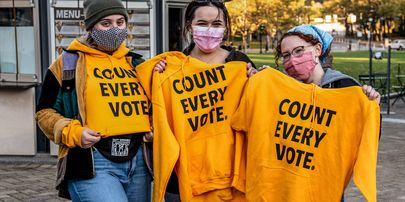
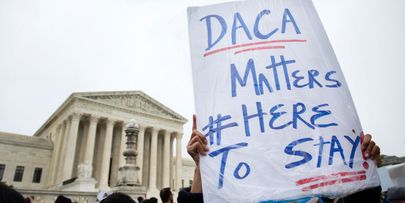
Chloe Angyal is a journalist who lives in Iowa; she is the former Deputy Opinion Editor at HuffPost and a former Senior Editor at Feministing. She has written about politics and popular culture for The New York Times, The Washington Post, The Atlantic, The Guardian, New York magazine, Reuters, and The New Republic. Angyal has a Ph.D. in Arts and Media from the University of New South Wales.
-
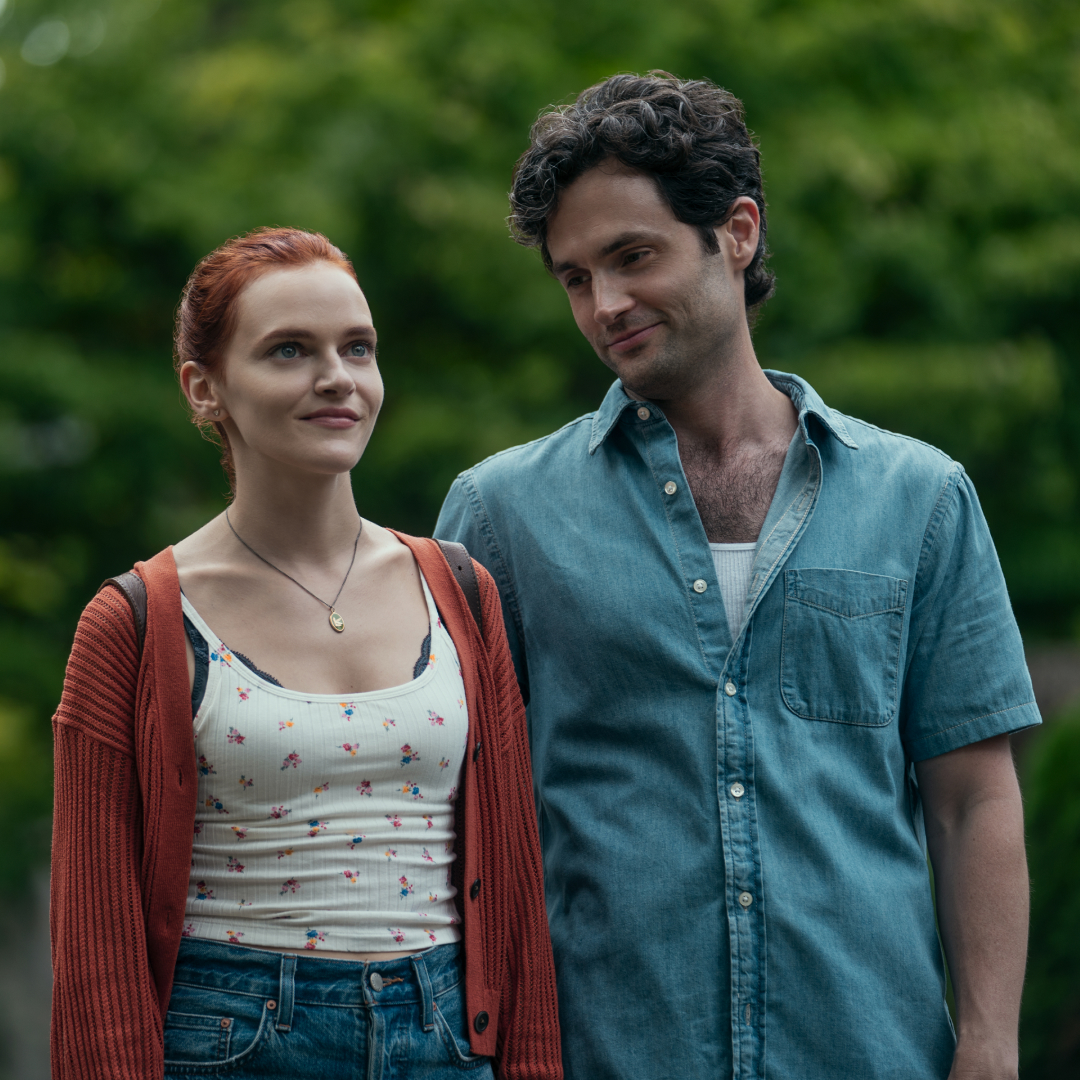 The 'You' Season 5 Cast Features People From Joe's Past, a New Love Interest, Madcap Twins, and More
The 'You' Season 5 Cast Features People From Joe's Past, a New Love Interest, Madcap Twins, and MoreHere's what to know about the star-studded final installment of the Netflix hit.
By Quinci LeGardye
-
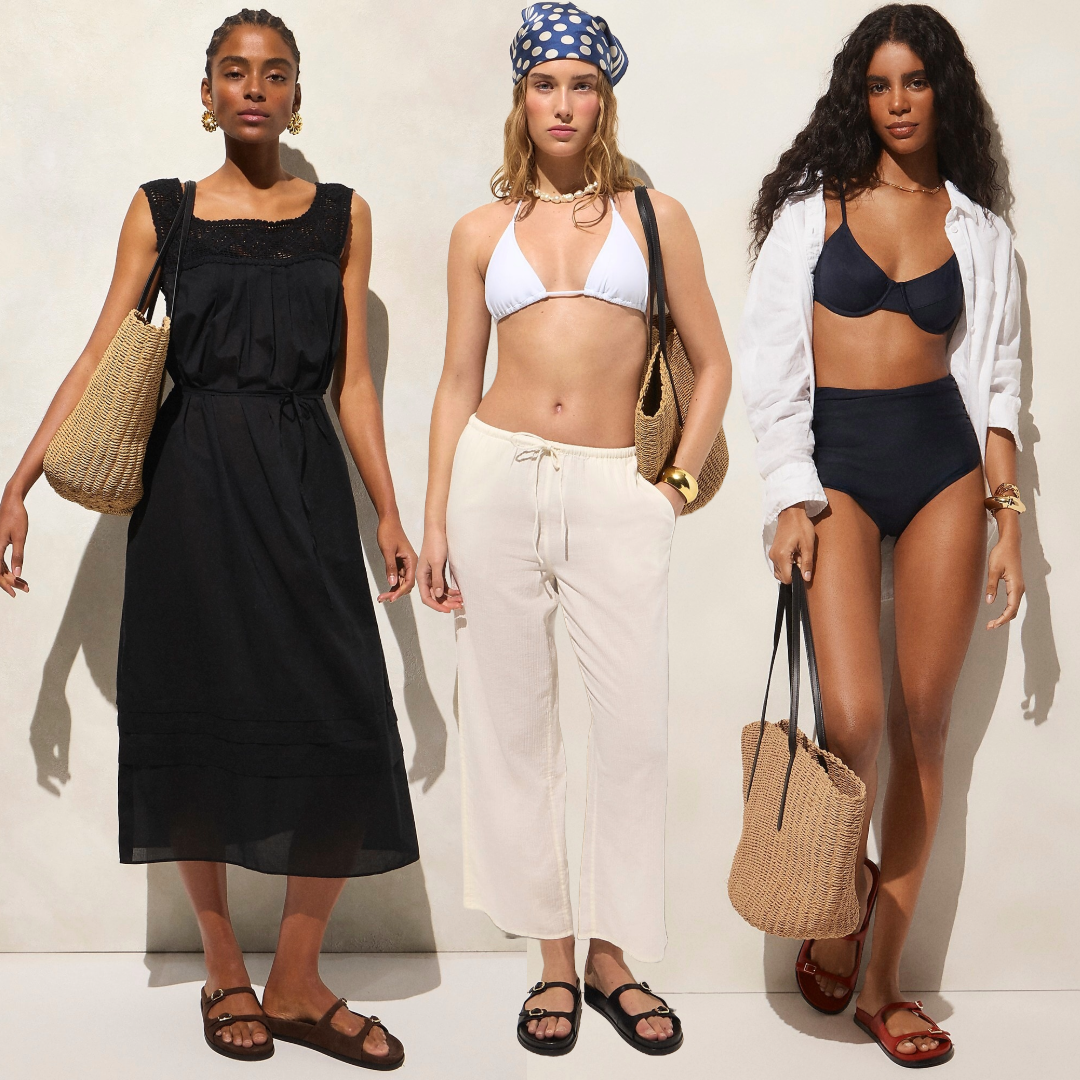 These J.Crew Sale Finds Basically Packed My Suitcase for Me
These J.Crew Sale Finds Basically Packed My Suitcase for MeI'm ready for my next vacation.
By Brooke Knappenberger
-
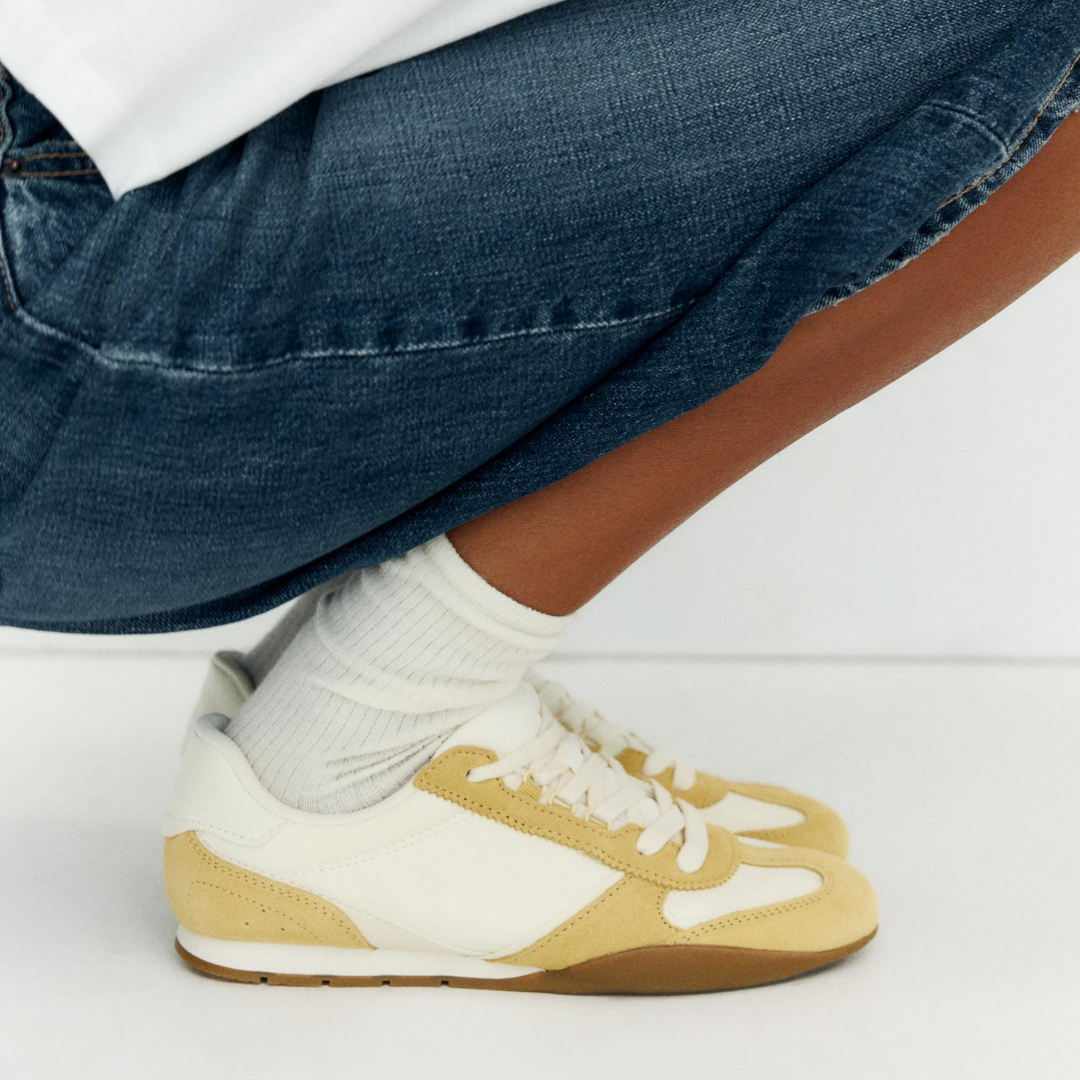 Summer's Sportiest Shoe Trend Is Worth Shopping More Than Once
Summer's Sportiest Shoe Trend Is Worth Shopping More Than Once17 pairs from Nordstrom, Mango, and Zara I'm shopping now.
By Julia Marzovilla
-
 36 Ways Women Still Aren't Equal to Men
36 Ways Women Still Aren't Equal to MenFeatures It's just one of the many ways women still aren't equal to men.
By Brooke Knappenberger
-
 How New York's First Female Governor Plans to Fight for Women If Reelected
How New York's First Female Governor Plans to Fight for Women If ReelectedKathy Hochul twice came to power because men resigned amid sexual harassment scandals. Here, how she's leading differently.
By Emily Tisch Sussman
-
 Why the 2022 Midterm Elections Are So Critical
Why the 2022 Midterm Elections Are So CriticalAs we blaze through a highly charged midterm election season, Swing Left Executive Director Yasmin Radjy highlights rising stars who are fighting for women’s rights.
By Tanya Benedicto Klich
-
 Tammy Duckworth: 'I’m Mad as Hell' About the Lack of Federal Action on Gun Safety
Tammy Duckworth: 'I’m Mad as Hell' About the Lack of Federal Action on Gun SafetyThe Illinois Senator won't let the memory of the Highland Park shooting just fade away.
By Sen. Tammy Duckworth
-
 Roe Is Gone. We Have to Keep Fighting.
Roe Is Gone. We Have to Keep Fighting.How To Democracy always offers a path forward even when we feel thrust into the past.
By Beth Silvers and Sarah Stewart Holland, hosts of Pantsuit Politics Podcast
-
 The Supreme Court's Mississippi Abortion Rights Case: What to Know
The Supreme Court's Mississippi Abortion Rights Case: What to KnowThe case could threaten Roe v. Wade.
By Megan DiTrolio
-
 Sex Trafficking Victims Are Being Punished. A New Law Could Change That.
Sex Trafficking Victims Are Being Punished. A New Law Could Change That.Victims of sexual abuse are quietly criminalized. Sara's Law protects kids that fight back.
By Dr. Devin J. Buckley and Erin Regan
-
 My Family and I Live in Navajo Nation. We Don't Have Access to Clean Running Water
My Family and I Live in Navajo Nation. We Don't Have Access to Clean Running Water"They say that the United States is one of the wealthiest countries in the world. Why are citizens still living with no access to clean water?"
By Amanda L. As Told To Rachel Epstein